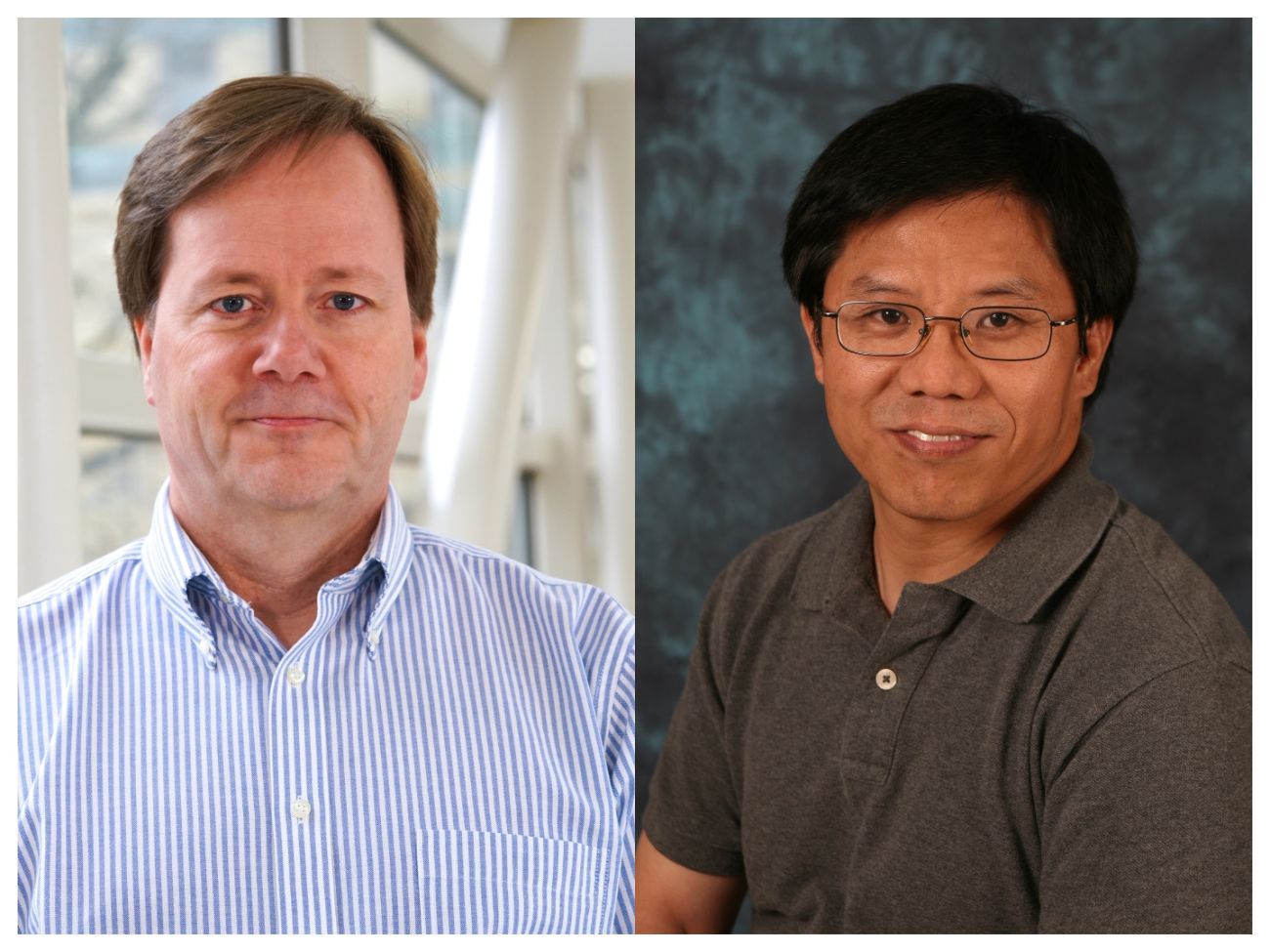Targeting the E3 ligase activity of MDM2 could help control cancer’s most commonly mutated protein
- Team developed a genetic model to study how MDM2 controls p53 protein
- E3 ligase activity of MDM2 ID'd as critical for cell division, p53 regulation
- Discovery could fuel development of a new line of MDM2-targeted cancer drugs
BUFFALO, N.Y. — A multidisciplinary team from Roswell Park Comprehensive Cancer Center has uncovered a previously unknown function of a gene that regulates p53, a protein that plays a significant role in more than half of all cancers. Their findings, published this week in the journal PlosGenetics, could have big implications for the development of cancer therapies targeting MDM2.
Mutations in the p53 protein, which plays a large role in the body’s natural defense against cancer, have been linked to a wide variety of cancers. The protein MDM2 can stop p53’s anti-tumor activity, which can lead to cancer development, and many cancer drugs are designed to target MDM2 and restore the ability of p53 to fight tumors.
Although much remains to be learned about how MDM2 regulates p53 and other proteins, a new study from the labs of Roswell Park scientists David Goodrich, PhD, and Xinjiang Wang, PhD, both professors of oncology in the Department of Pharmacology & Therapeutics and leaders in the p53 research field, has shed a light on how MDM2 regulates p53.
“There are two competing theories to explain how MDM2, a potentially oncogenic protein, regulates the most potent tumor suppressor known – the p53 protein,” explains Dr. Wang, whose lab has been researching the role of MDM2 in cancer for more than 20 years. “The first is that MDM2 directly binds to p53, and current approaches to cancer therapy are based on this assumption and attempt to physically block this interaction. The second theory suggests that MDM2 E3 ubiquitin ligase activity plays key role in regulating p53 and potentially other proteins.”
The researchers developed a new preclinical model that genetically separated the two ways in which MDM2 can function and discovered that MDM2’s E3 ligase activity is essential for p53 regulation during normal development. Removal of E3 ubiquitin ligase from MDM2 resulted in a hyperactive form of p53 and led to profound defects in the cell cycle that were independent of p53.
“This discovery has important implications for the development of cancer drugs targeting MDM2,” adds Dr. Wang. “Current therapies focus on the interaction between MDM2 and p53, but this approach does not account for cancer-promoting activities of MDM2 that are independent of p53. Targeting the E3 ligase activity of MDM2 could be a more effective approach to cancer drug development.”
The Roswell Park researchers are currently building upon this discovery to explore novel cancer treatment approaches that use cancer-fighting molecules to target the E3 ligase activity of MDM2, including MMRi62, a compound recently identified in Dr. Wang’s lab.
This study was supported by grants from the National Institutes of Health, National Cancer Institute (R01CA208352, R01CA234162, R01CA207757, R50CA221786 and P30CA016056) and the Roswell Park Alliance Foundation.
###
Roswell Park Comprehensive Cancer Center is a community united by the drive to eliminate cancer’s grip on humanity by unlocking its secrets through personalized approaches and unleashing the healing power of hope. Founded by Dr. Roswell Park in 1898, it is the only National Cancer Institute-designated comprehensive cancer center in Upstate New York. Learn more at www.roswellpark.org, or contact us at 1-800-ROSWELL (1-800-767-9355) or ASKRoswell@RoswellPark.org.
Rebecca Vogt, Media Relations Specialist
716-845-4919; rebecca.vogt@roswellpark.org
